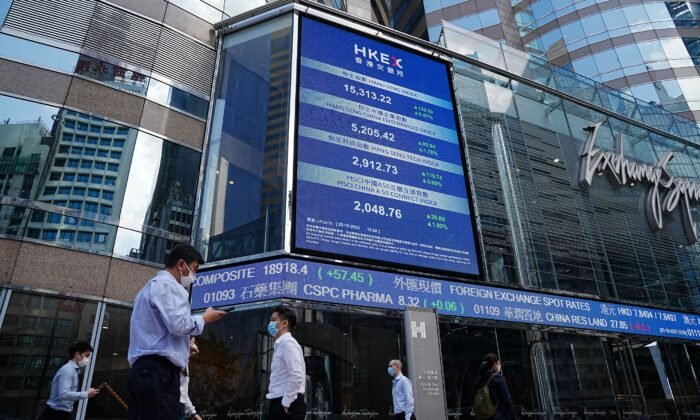South Korean Regulatory Authority to Crack Down on Traders of Chinese Equity Derivatives
South Korea’s financial regulator announced on Monday that it will take action against banks and brokerages engaged in the sale of derivative products tied to Chinese stocks listed on the Hong Kong stock exchange.
The Financial Supervisory Service (FSS) uncovered “various cases of illegal and unfair practices” in the marketing of equity-linked securities linked to the Hang Seng China Enterprises Index.
The Hang Seng China Enterprises Index serves as a benchmark for China-based companies listed in Hong Kong.
According to the FSS, these unfair practices include “incomplete sales,” where consumers are not provided with all the necessary information about the product, such as contract terms and investment risks.
The FSS stated that sellers had facilitated incomplete sales by setting excessive sales targets during a period of increasing risks for consumers, neglecting consumer protection measures, and promoting aggressive sales tactics through inadequate performance indicators.
The structured notes are designed to track the performance of the Hang Seng China Enterprises Index and offer bond-like coupons unless the index falls below a certain level. The sharp decline of this index earlier this year resulted in significant losses for retail investors.
The FSS anticipates that losses from these financial products will amount to a total of 5.8 trillion won ($4.4 billion) this year. Earlier, the financial watchdog had disclosed that it was investigating 12 local banks and brokerages.
The FSS stated that it will enforce penalties on violations in the sale of investment products in compliance with the law, including sanctions and fines, while also considering efforts to compensate customer losses.
The regulator recommended that financial institutions compensate at least 20 percent of the losses incurred by buyers. The level of compensation will be determined based on the severity of the breaches, as per the FSS.
“The FSS plans to promptly initiate the dispute mediation process by convening dispute mediation committee meetings on representative cases,” cited the regulator in local media reports.
“Nevertheless, each financial institution may choose to voluntarily compensate consumers based on the proposed compensation rate,” it added.
Earlier in the year, the FSS had identified issues such as banks pressuring employees to sell high-risk, complex financial products that are challenging for retail investors to comprehend.
As per the regulator, of the 19.3 trillion won (approximately $14.48 billion) worth of such notes sold in South Korea, more than a quarter were acquired by individuals aged 65 or above.
Naked short-selling of stocks, where investors short-sell shares without arranging for a borrowing arrangement beforehand, is prohibited under the Capital Markets Act in South Korea.
Reuters contributed to this report.






